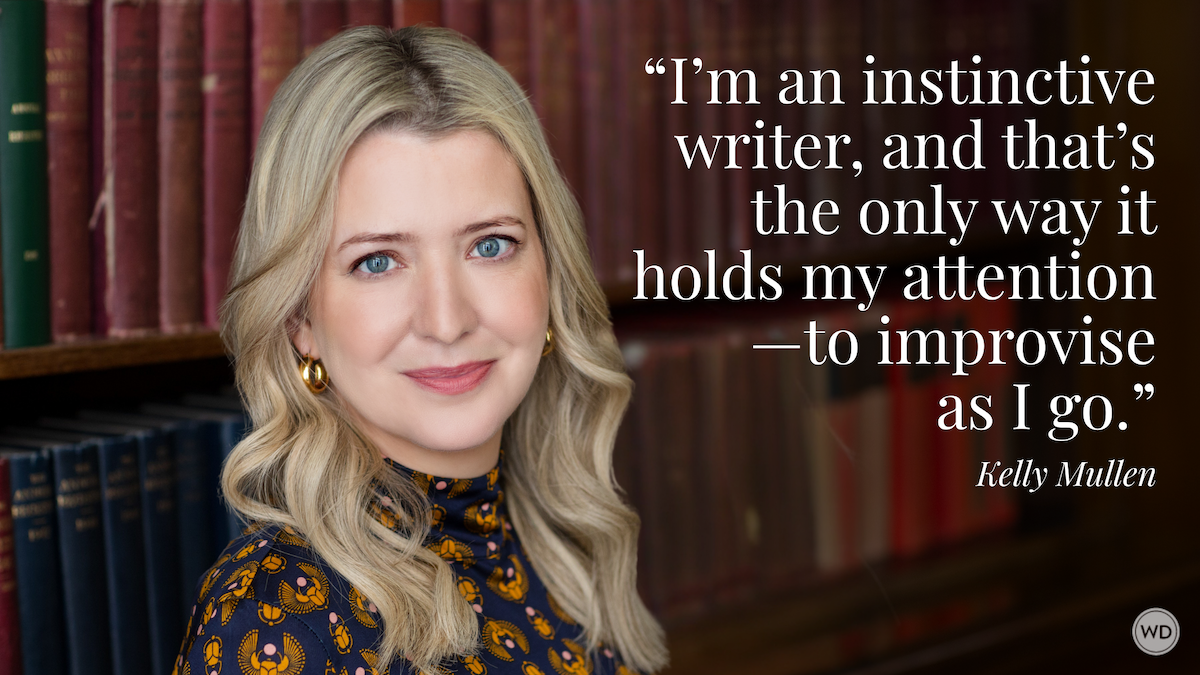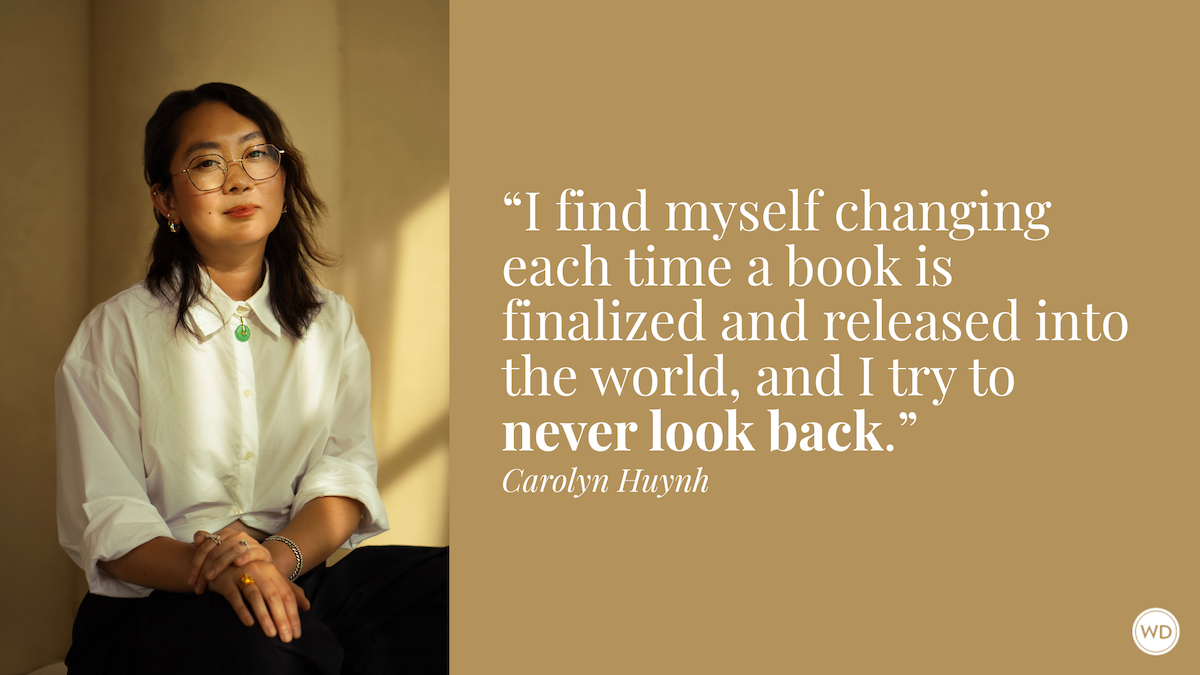Surviving Over 30 Years of the Writer’s Life, One Buffet Café Lunch at a Time
Historical novelists Stephanie Cowell and Judith Lindbergh share how their friendship helped sustain their writing careers over a 30-year period that has seen them share agents, editors, and publishers.
How do you survive over 30 years as a novelist? While the dream is to rise from aspiring to debut to literary success, the truth is that, for most authors, the road is far bumpier.
Two writers have traveled this road together: historical novelists Stephanie Cowell and Judith Lindbergh. Stephanie has five traditionally published novels to her credit and another coming in 2023. Judith will publish her second in 2024 and is the Founder/Director of The Writers Circle, a creative writing community in New Jersey. But what makes them unique is how long they’ve supported one another through their literary careers.
“We met in a convent in an old townhouse in Manhattan where we’d both gained places in Madeleine L’Engle’s writers’ workshop,” Stephanie said. “Classes included dinner. Judy sat next to me at the long refectory table as nuns in long black habits scurried around us serving copious amount of food. She was in her early 20s, earnest and full of energy, moving her hands as if she wanted to express everything at once.”
At that time, Judith was attempting her first novel. Meanwhile Stephanie was submitting four of her own to agents and publishing houses. Several almost said yes.
“Madeleine was mentoring you through it,” Judith remembered. “You were so committed, though sometimes also distraught. I was in awe that you would go to her apartment for advice and dinner. You were the best writer in the class and, oh, how I wished that I were you!”
Toward the end of the workshop, Judith heard that Stephanie and a few other writers were starting a critique group. “I was desperate to join you.”
She did and soon the group—a television writer, another novelist, a YA novelist, and a scholar—was meeting monthly at a playwright’s apartment, sharing writing around a table piled high with food. “Food is a necessity for any successful writers’ group,” Judith said. “We also had annual pot-luck gatherings at Madeleine’s Upper West Side apartment.”
Stephanie, who is 20 years older than Judith, was a divorced single mom. Judith had just left a career in dance and musical theater. Both were working at dull day jobs to make ends meet. “Our offices were just 10 blocks apart,” Stephanie said. “We started meeting at a dingy buffet café during lunch hours, groaning that no publisher would take our books. Would we ever make a living at writing?”
Soon the writing group was publishing short stories, articles, and essays. But still, both Stephanie’s and Judith’s novels remained unpublished.
Finally, a miracle happened: W.W. Norton accepted Stephanie’s first novel, Nicholas Cooke. The group was overjoyed. “And a little jealous,” Judith admitted.
Just as Stephanie’s book came out, the group borrowed a friend’s cabin in East Hampton for a retreat. “When I came in late on the train,” she said, “they were waiting for me at the station, wearing T-shirts emblazoned with my novel’s cover, performing a wild kick line. Later we found my book in the window of the local bookstore.”
By this time, Judith had given up pitching her first novel. “It simply wasn’t good enough,” she said. But she was deep into a new novel called The Thrall’s Tale about Viking Age Greenland.
“She would read scenes to the group,” said Stephanie, “but she never told us what would happen. She always just said, ‘You’ll see.’”
Finally Judith’s book was ready to submit. Stephanie remembered, “I had just published Marrying Mozart at Viking. I introduced Judy to my agent who took her book to my editor, all in a matter of weeks. I still remembered Judy’s shocked tone when she called to tell me she had an offer. Years after we met at that convent dinner, we had landed with the same agent, publisher, and editor.”
Judith’s novel received one of those buzz-worthy advances of the mid-2000s. It was enough money for her to write full-time from her new house in New Jersey while caring for her toddler and newborn son. “Now it was my turn to be envious,” said Stephanie. “My last book did well but not well enough. I was still trudging into work. And now there was no one to complain with over lunch. Still, we never let that get in the way of supporting one another.”
By then, the original writers’ group, which had lasted 10 years, had dissolved. Stephanie sold one more novel, but still hadn’t made enough from writing to earn a living. Judith finished two more novels but could not place them with a Big 5 publisher.
“We both wanted to publish again, to become bestsellers and award-winners. We kept asking ourselves what we were doing wrong,” Stephanie said. “Meanwhile other struggling writers looked at us and wondered how we’d had such good fortune.”
They kept in touch with phone calls, emails, and the occasional meet-up on one side of the Hudson River or the other. They sent drafts to each other for feedback. Judith began teaching a few classes which blossomed unexpectedly into her vital suburban writing community. “Despite my own literary frustrations, I knew that I was making a positive impact on my students every day,” she said.
Finally, Stephanie decided to dig up a novel from the depths of her literary drawer. “For years, this was the one book that I loved above all. It’s about two Edwardian young men in love. No one had wanted it, at first because it was undeveloped, and then because the subject was too hard to market. Even my agent gave up on it.”
Check out Stephanie Cowell's The Boy in the Rain here:
(Writer's Digest uses affiliate links.)
During the pandemic she revised The Boy in the Rain yet again and sent it off for comments to Judith and other writer-friends. One of them referred her to a small, traditional literary press, Regal House Publishing. They gave her a contract.
A year later, Stephanie recommended Judith to her new editor who fell in love with her new novel, Akmaral. “So here we are together again with the same editor and publisher,” they said together.
At a party for novelists in Manhattan recently, they flew into each other’s arms. Both writers sport shades of gray hair and a few more wrinkles than when they first met. They talked about Madeleine L’Engle, now gone, and other writers they’ve lost along the way. They talked about their latest writing, Judith’s sons in college, Stephanie’s granddaughters, and they complained about how difficult publishing is.
“After more than 30 years, complaining is almost a tradition,” Stephanie said. “And publishing is still hard. It seldom lives up to anyone’s expectations. But we know we could not have kept going without each other. Our story is literary friendship at its best.”
Stephanie Cowell has been an opera singer, balladeer, founder of Strawberry Opera and other arts venues including a Renaissance festival in NYC. She is the author of Nicholas Cooke, The Physician of London, The Players: a novel of the young Shakespeare, Marrying Mozart, Claude & Camille: a novel of Monet, and The Boy in the Rain. Her work has been translated into nine languages and made into an opera. Stephanie is the recipient of an American Book Award. https://www.stephaniecowell.com/








